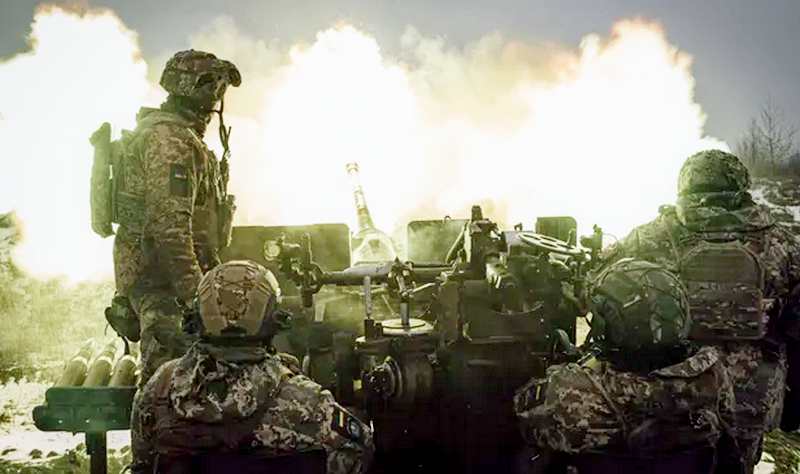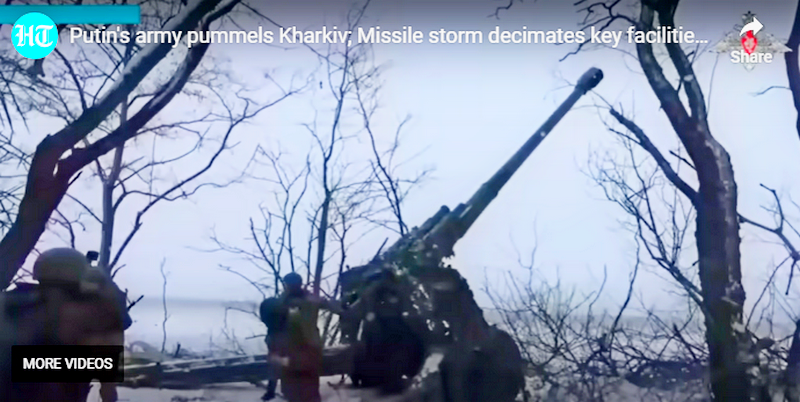Talk of resignation and retreat swirls in Ukraine as Bakhmut nears endgame

By The Guardian - Dan Sabbagh in Kyiv - Sun 5 Feb 2023
Ukraine’s defence minister sought to dismiss speculation in Kyiv that he would be forced to resign or be reshuffled at a lengthy press conference where he also claimed that Russia was taking 500 casualties a day in Bakhmut.
Speculation is rife that Ukraine’s defence minister will be forced to resign as Russia steps up attacks on the eastern side of the city.
Oleksii Reznikov, one of Ukraine’s better-known figures internationally, has been under pressure after it emerged the defence ministry paid twice or three times the supermarket price of food to supply troops on the frontline.
“No one is in the chair for his whole life,” Reznikov said on Sunday, before stressing that any decision about his appointment “was up to President Volodymyr Zelenskiy of Ukraine in accordance with the constitution”.
Such generalised comments are unlikely to kill off the speculation of the last 24 hours, suggesting that Reznikov might quit or be moved by Zelenskiy, and replaced by Kyrylo Budanov, the head of Ukraine’s military intelligence.
On Saturday, an opposition MP, Oleskiy Honcharenko, said there was “a high probability” Rezniknov would be moved to work as the deputy to Andriy Yermak, Zelenskiy’s chief of staff. Similar speculation appeared in Ukrainian media on Sunday.
Reznikov used the press conference to highlight the weapons that Ukraine has gradually obtained from the west over the past year, from 155mm artillery to tanks, and argued that “therefore we can say today we are a de facto a Nato country”.
Last week, the Ukrainian minister met the French president, Emmanuel Macron, in Paris, underlying his seniority in Kyiv’s government. During his visit, France announced it would supply 12 more Caesar howitzers to Ukraine.
But Reznikov faced a string of questions about corruption in the ministry from Ukrainian journalists, at a time when Zelenskiy has instituted a fresh anti-corruption drive to show the country can be ready for EU membership. Efforts to tackle corruption in his ministry needed to be “fully reloaded”, he added.
The defence minister said he believed that Ukraine would eventually obtain F-16s or other western fighter jets, but warned against slow decision-making. “Procrastination with aircraft platforms,” Reznikov said, “will cost us more lives and blood of Ukrainians” and would eventually cost the west more in postwar reconstruction.
A future Russian offensive, the minister predicted, would come from “two directions of their priority, to try and break through our defence line in the east and south” in an attempt to capture all the eastern Donbas and maintain a large land bridge between prewar Russia and Crimea, occupied since 2014.
The major attack would probably be timed to coincide with the first anniversary of the war, said Reznikov, adding that while “not all of the western weaponry will arrive in time” he believed Ukraine would be able to hold back a fresh assault.
Russia has gradually stepped up its attacks on the eastern city of Bakhmut, where the offence is led by the private military Wagner group, although the Ukrainians argued that Moscow was continuing to take heavy losses, mostly of prisoners, allowed out of jails and forced into battle.
Russia, Reznikov said, was losing “500 killed and wounded every day in Bakhmut” – a figure that it is not possible to verify – while Ukraine’s losses were “strictly less” in fierce winter fighting that has gradually seen Moscow’s forces come closer to enveloping the largely deserted city.
The most pivotal stories and debates for Europeans – from identity to economics to the environment
The casualty figure is likely to be on the high side, but reflective of the nature of urban warfare and a contest for a city, which has dragged on for several months, but is increasingly entering its endgame.
Britain’s Ministry of Defence said Bakhmut was “increasingly isolated”, in a morning intelligence assessment, which noted that Russia now had the two main roads into the city under threat from direct artillery fire, making it harder to supply the defending forces into the town.
Yevgeny Prigozhin, the head of Wagner, said Ukrainian forces were continuing to contest the Russian advance, in a statement that described Bakhmut by its old name, which dates back to the Soviet era.
“In the northern quarters of Artemovsk, fierce battles are going on for every street, every house, every stairwell,” Prigozhin said. “The Ukrainian armed forces are fighting to the last,” he added.
Overnight, Zelenskiy himself acknowledged that the situation “is very difficult” at key points in the frontline, in Bakhmut, and also near further south Vuhledar, south-west of Donetsk city, and further north-east of the city of Lyman.
Any decision to stage a tactical retreat from Bakhmut, Reznikov said, would be made by Ukraine’s military leaders, led by Gen Valerii Zaluzhnyi, arguing it was not a matter that could be determined by politicians.
Five civilians were killed by Russian shelling, regional officials said, four of whom were in the eastern Donetsk province, including three in Bakhmut. Five were injured in Kharkiv when missiles struck a residential building and a university block.
Privacy Notice: Newsletters may contain info about charities, online ads, and content funded by outside parties. For more information see our Privacy Policy. We use Google reCaptcha to protect our website and the Google Privacy Policy and Terms of Service apply.

VIDEO

